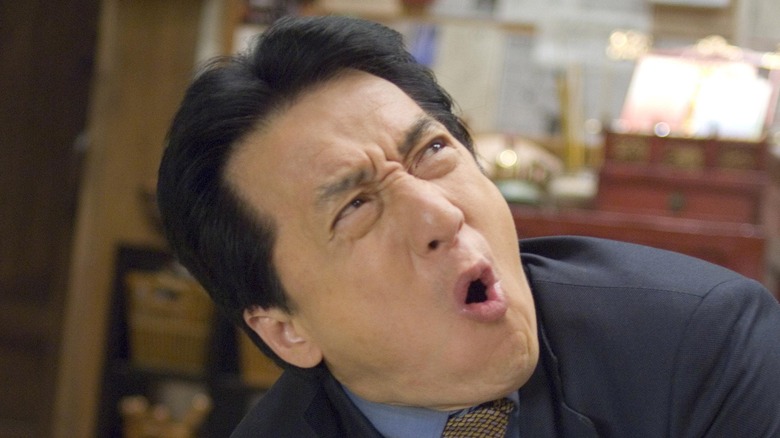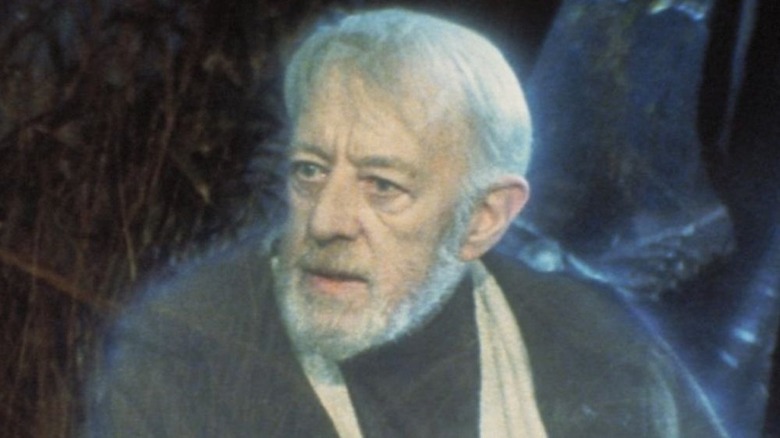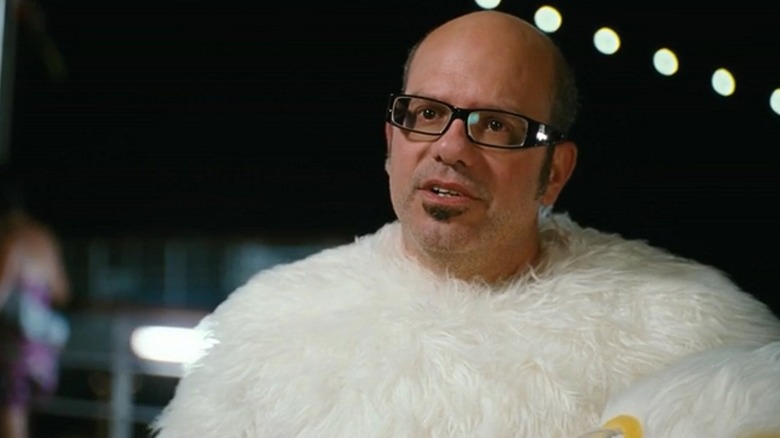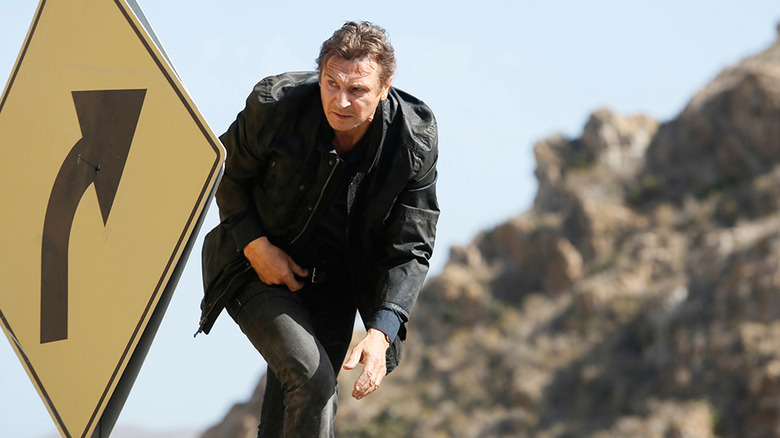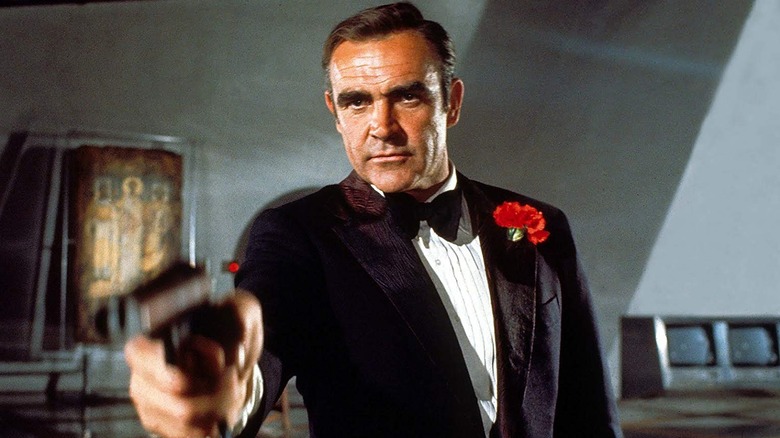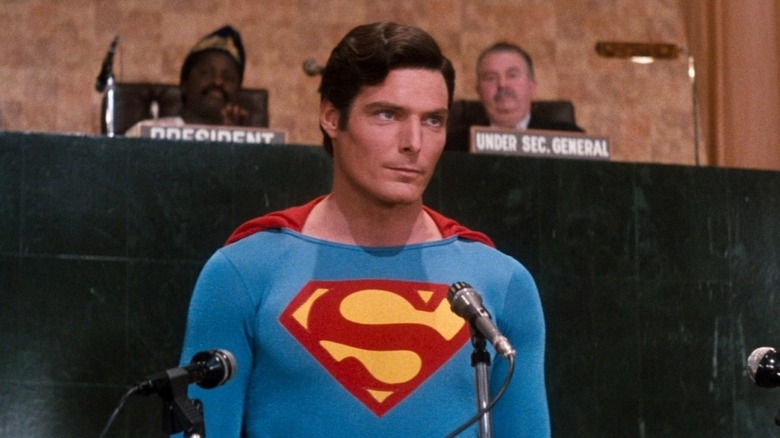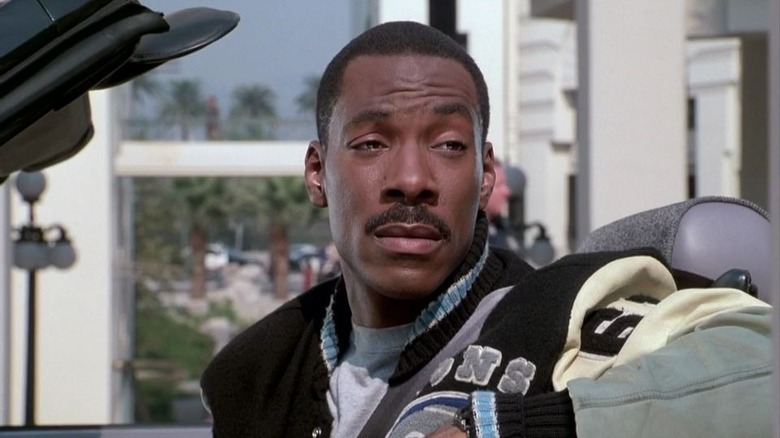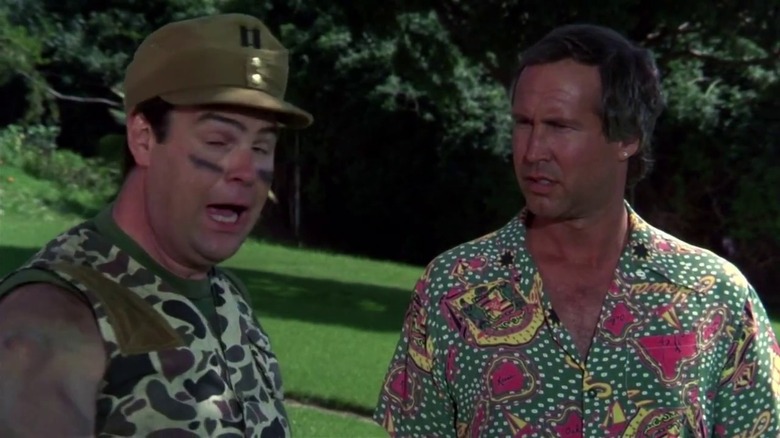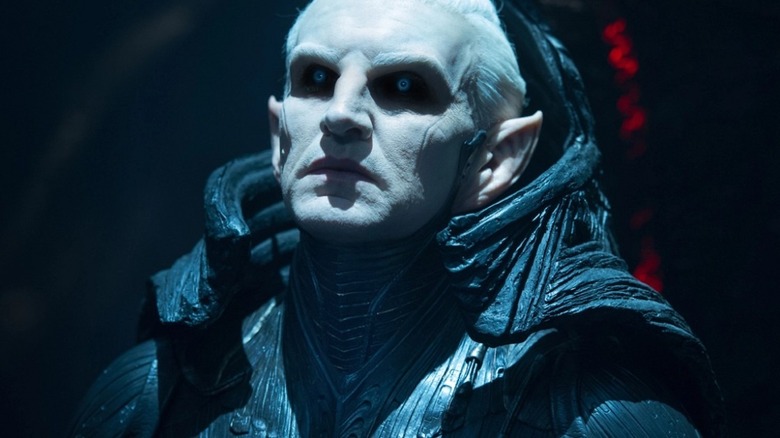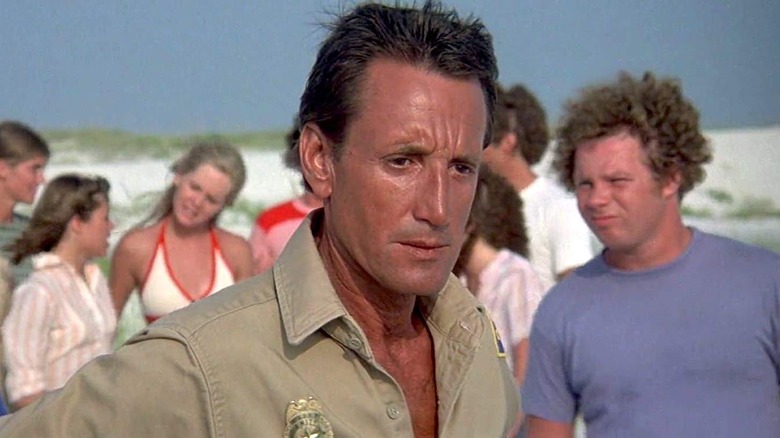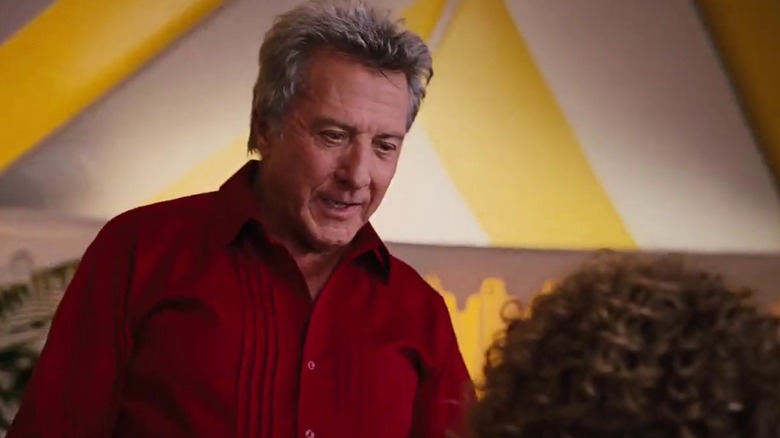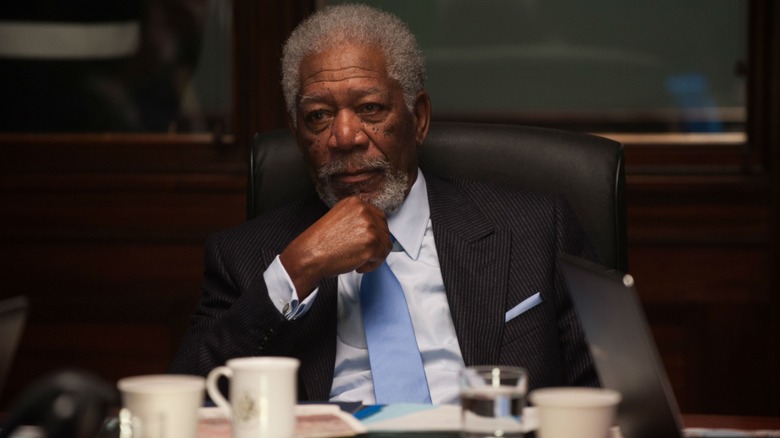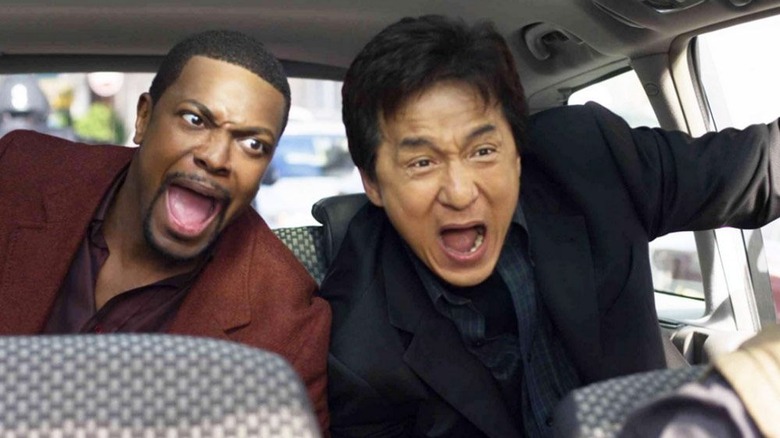Actors Who Reluctantly Did A Sequel For The Money
Cinematic history is filled with sequels that equal or even surpass their predecessors, but there are so many lackluster follow-up films that public perception of sequels in general is still largely negative. The worst of them can often be so unpromising even from a script level that viewers wonder why the actors agreed to be in them. Often, it comes down to the fact that they're paid a lot of money to do so.
Despite the glitz and glamour associated with acting, it's still a job like anything else, and like so many workers, actors occasionally take jobs they aren't overly enthusiastic about because they pay well. Many actors keep quiet about their motives for making these kinds of paycheck movies, but sometimes word gets out, whether because of public salary negotiations or because the actors give statements confirming they weren't passionate about making certain movies. Here's a look at some sequels — a few good but many not so good — whose stars couldn't keep their disinterest a secret.
Alec Guinness, Star Wars Episode V: The Empire Strikes Back
Alec Guinness' antipathy for his most famous role, Obi-Wan Kenobi in "Star Wars," has become the stuff of legend. His initial agreement to do "Star Wars" only came after his salary was raised, and he said in a letter to a friend that "the lovely bread" was the only thing making its production bearable to him. After it came out and became a sensation, Guinness resented how the movie overshadowed the rest of his career, appreciating it only for the money it gave him to be more selective with parts in the future. When the time came to make the first "Star Wars" sequel, "The Empire Strikes Back," Guinness was not easily sold on returning.
Piers Paul Read's "Alec Guinness: The Authorised Biography" describes the process by which Guinness was convinced to make "Empire." "Star Wars" creator George Lucas approached Guinness about doing "a couple of days" of work on "Empire," but Guinness refused after reading the script and saying "the idea doesn't attract me." Guinness finally agreed after his amount of work was lowered to one day and he was allowed to participate in "minimum publicity" for the film. For his one day of work, he was paid in "a minute percentage of the profits." Given that "Empire" pulled in more than $200 million worldwide during its original theatrical run, that "minute percentage" must have worked out to quite a handsome sum.
David Cross, Alvin & The Chipmunks: The Squeakquel and Chipwrecked
Comedian David Cross earned a loyal cult audience thanks to his HBO sketch series "Mr. Show," which served as a career-launching project for Cross and his partner Bob Odenkirk, not to mention beloved comedians Paul F. Tompkins, Sarah Silverman, and Scott Aukerman. "Mr. Show," followed by Cross' role on the low-rated but acclaimed sitcom "Arrested Development," garnered him a reputation for doing intelligent, biting comedy — a reputation that was damaged by Cross appearing in the first three "Alvin and the Chipmunks" movies.
Cross attracted criticism from his fellow comedians for selling out by doing the "Chipmunks" movies, and he responded by openly admitting he did them for the money. After making the first one, he posted a statement saying that "Chipmunks" gave him the money to put a down payment on a New York apartment, something that his "indie hipster cred" could not accomplish. While Cross was initially brash about his "Chipmunks" money, he changed his tune after making two more "Chipmunks" movies, an experience that left him wanting to "get the f*** out of there as soon as possible," collect his money, and "buy a summer home with the check." He especially hated making the third "Chipmunks," "Chipwrecked," which he called "the most unpleasant experience" of his career.
Cross' honesty is admirable, even after the fact, and it ended up being costly: He lost out on a $150,000 bonus for publicly badmouthing the movies.
Liam Neeson, Taken 2 & 3
After making movies for almost three decades, Liam Neeson became an unlikely action star at the age of 56 thanks to "Taken," a simple revenge story that became a surprise hit, grossing nearly $227 million worldwide. Not even Neeson expected it to do so well, later saying he thought it would go straight to video. That kind of surprise success often leads to sequels, but Neeson was reluctant to return to a franchise he assumed wouldn't go anywhere in the first place.
By the time "Taken 2" was announced, Neeson had exploded in popularity as a leading man, starring in other action movies like "The A-Team" and "The Grey." Capitalizing on his newfound popularity, he only agreed to do "Taken 2" if he was paid a new, much higher salary of $10 million. The studio agreed, and the sequel was another big hit for Neeson. But when promoting "Taken 2," he seemed tired of the franchise and downplayed the possibility of a "Taken 3," saying he couldn't see "a possible scenario where audiences wouldn't go 'Oh, come on...! She's taken again?'"
When "Taken 3" was inevitably announced, Neeson held out for another salary increase that brought his take to a reported $20 million — nearly half of the movie's $48 million budget. While "Taken 3" was also a success, there have been no reports of a "Taken 4" in the works, with or without Neeson.
Sean Connery, Diamonds Are Forever
In 1969, James Bond was recast for the first of many times. Sean Connery resigned from the part, later telling Rolling Stone that he had grown tired of the constant press attention he faced while making Bond films. George Lazenby stepped into the part for "On Her Majesty's Secret Service," but rejected a million-dollar contract to return for future Bond films. For the follow-up to "Majesty's" in 1971, the producers decided to ask Connery to return to the part. He agreed, but not without some demands.
Connery's decision to reprise Bond in "Diamonds Are Forever" happened at least in part because he saw the film as an opportunity to boost both his bank account and his non-Bond film career. When asked to return, he only agreed after striking a deal that gave him a record-breaking salary, a percentage of the film's profits, a bonus if "Diamonds" went over schedule, and the opportunity to make two original movies for United Artists, Bond's distributor. "Diamonds" was a success, but Connery refused to star in the next Bond film, musing, "Of course the films will go on, but who'll play me I just don't know and can't guess." He was replaced by Roger Moore for the next Bond film, "Live and Let Die," although he eventually returned to Bond in 1983 — albeit at a different studio — for "Never Say Never Again," which reportedly paid him $5 million plus a percentage of the gross.
Christopher Reeve, Superman IV: The Quest for Peace
Christopher Reeve stuck by the "Superman" franchise through numerous troubles, including the producers firing original director Richard Donner in the middle of production on "Superman II," but he was burnt out after "Superman III," telling the Los Angeles Times he "didn't subscribe to the style" of the sequel, which he felt was "parodying the characters." When the time came to make "Superman IV: The Quest for Peace," Reeve needed some enticement to return to the part.
Reeve worked out a deal with the franchise's new studio, Cannon Films, that would pay him $5 million for "Quest for Peace" and give him approval over the film's storyline, plus financing for his passion project, the drama "Street Smart." Reeve liked the "Superman IV" story, which revolved around nuclear proliferation, but he was less enthused about Cannon's cost-saving measures during production; years later, he railed against the studio in his autobiography for how they frequently cut corners during production, slashing the budget by almost half. The poorly received film would unfortunately bring Reeve's tenure as Superman to a disappointing end.
Eddie Murphy, Beverly Hills Cop III
When an actor tells the press that they did a movie solely for the money, they typically wait until well after the movie in question has actually been released. Eddie Murphy is a rare exception: During a 1989 Rolling Stone interview, he was asked about the possibility of a second sequel to his hit action-comedy "Beverly Hills Cop," and he replied bluntly that "there's no reason to do it: I don't need the money, and it's not gonna break any new ground." He even told the interviewer that, should he end up making a "Beverly Hills Cop III," "you can safely say, 'Ooh, he must have got a lot of money!'." Five years after that interview, "Beverly Hills Cop III" was released.
Paramount paid Murphy $15 million to make "Cop III" in 1992, a time when he was coming off several box office disappointments. Entertainment Weekly reported that Paramount was nervous about Murphy's "box office clout," and Murphy himself seems to have been at a low creative ebb; his costar throughout the series, Bronson Pinchot, later described Murphy's mood on the set of "Cop III" as "very low-spirited, low-energy," which he believed was a reaction to the "bad stretch" of movies Murphy was on at the time. When released in 1994, "Cop III" continued Murphy's losing streak, grossing only $42 million in America, more than $100 million less than the domestic take brought in by "Beverly Hills Cop II" seven years earlier.
Chevy Chase, Caddyshack II
"Caddyshack II" has earned a reputation as one of the worst sequels of all time. Even at the time of its making, no one wanted to be involved with it, with original "Caddyshack" star Rodney Dangerfield dropping out after being dissatisfied by the script and Bill Murray refusing to do it after hearing that it would be rated PG unlike the R-rated original. The only "Caddyshack" cast member to reprise his role in the sequel was Chevy Chase, and even he didn't agree without a sizable check from the studio.
Chase was said to receive a seven-figure salary for "Caddyshack II," and according to director Allan Arkush, he frequently talked about his paycheck while filming, seemingly to the detriment of putting any effort into his performance. Arkush said that he "went into this thinking that Chevy was committed to his character, but he wasn't." While shooting one scene, Chase refused to give any input on a scene; later, he complained that Arkush didn't let him have any say over how to shoot a different scene. Chase's contempt for making the movie was matched by audiences and critics, who turned "Caddyshack II" into one of the biggest embarrassments of the year.
Christopher Eccleston, Thor: The Dark World
The production of "Thor: The Dark World" was torturous for more than one person. Natalie Portman was lured back for the sequel partly due to the presence of director Patty Jenkins — and then left reportedly enraged (but contractually obligated to stay) after Jenkins was fired. Jenkins' replacement, Alan Taylor, later claimed the theatrical cut represented a heavily altered version of his original vision, calling the experience "something I hope to never repeat." But the person who was most vocally displeased after making the movie was Christopher Eccleston, who swore off any more big paycheck movies after making it.
Eccleston had already had a bad experience starring in a blockbuster when he made "G.I. Joe: The Rise of Cobra," but he agreed to play the villain Malekith in the second "Thor" film anyway. When BBC host Graham Norton (via Digital Spy) later asked why he signed on for "The Dark World," he simply said, "Money. That's what I felt." But the money was no consolation for the process of actually making the movie.
Eccleston claimed that Marvel didn't tell him how much prosthetic makeup he'd have to wear to play Malekith, with the process of applying it taking as long as eight hours before he could shoot anything. The arduous preparation for a movie he already wasn't invested in soured Eccelston on doing any more big-budget productions. He later reflected on "Thor" and "G.I. Joe" during an interview with the Guardian, saying that he "really paid for being a whore those times."
Roy Scheider, Jaws 2
"Jaws" is one of those huge hits whose story doesn't lend itself to a sequel, but its box office performance demanded one anyway: After soaring past "The Godfather" and "The Exorcist" to become the highest-grossing film of all time, Universal demanded a follow-up. Director Steven Spielberg opted out, later saying he didn't want to direct a sequel because "making the first movie was a nightmare," and "Jaws" cast member Richard Dreyfuss refused to do it if Spielberg wasn't involved. This left Roy Scheider as the biggest cast or crew member to return for "Jaws 2" — and he wasn't happy about it.
In a New York Times interview taken during production of "Jaws 2," Scheider admitted that he was reluctant to return, calling the film "a contractual obligation [...] that I will fulfill as best as I can." According to Diane Kachmar's "Roy Scheider: A Film Biography," Scheider agreed to appear in "Jaws 2" only after his salary from the first film was quadruple. The money still wasn't enough to make shooting "Jaws 2" pleasurable, as Scheider fought with director Jeannot Szwarc throughout production, including one incident when producer David Brown said Scheider "grabbed Szwarc and flung him against the wall." Scheider said during production that he wanted to "arrange my career so that I can work in some small films," and although he'd go on to star in more than one major production, he didn't return for either of the subsequent "Jaws" sequels.
Dustin Hoffman, Little Fockers
In 2004, Dustin Hoffman joined the cast of the "Meet the Parents" sequel "Meet the Fockers," playing Ben Stiller's father opposite Barbra Streisand as Stiller's mother. "Fockers" was an even bigger hit than "Parents," leading to another sequel, 2010's "Little Fockers." But Hoffman refused to sign on for "Little Fockers" at first, holding out for more than a year until he was offered a reported $7.5 million for five days of work. When asked why he finally agreed to appear in it, he responded simply, "The back end."
Hoffman's late deal meant that he was cast after principal photography on "Little Fockers" was already finished. According to Deadline, he was added to "Fockers" in reshoots when only a few of the other cast members were present, including Stiller and Streisand. Despite all the trouble that went into his inclusion, he did nothing to save a movie that got terrible reviews and made less money than its predecessor.
Morgan Freeman, London Has Fallen
Morgan Freeman has made a career of lending gravitas to big-budget productions, even ones that wouldn't necessarily seem to deserve it — but there's only one time he's openly admitted to taking a role for the money.
Freeman took one of his many authority figure roles in the 2013 Gerard Butler action movie "Olympus Has Fallen," playing the Vice President to Aaron Eckhart's President of the United States. Despite bad reviews, "Olympus" was a hit, and the sequel "London Has Fallen" arrived three years later, with Butler, Eckhart, and Freeman all returning. "London" received even worse reviews than "Olympus," and while doing promotional interviews for "London," Freeman didn't bother to sugarcoat his reasons for doing the movie. "These large production action films pay well," he openly admitted when asked why he chose to be in the film, also singing the refrain of the O'Jays' "For the Love of Money" to further prove his point.
Jackie Chan, Rush Hour 2 & 3
Jackie Chan's early career included more than one attempt to parlay his stardom in Hong Kong and China into success in the United States, including a supporting part in "The Cannonball Run" and two unsuccessful American starring vehicles, "The Protector" and "The Big Brawl." The film that finally made Chan a mainstream American star was "Rush Hour," an action-comedy that paired him with Chris Tucker. "Rush Hour" was a big hit, Chan's first $100 million-grossing film in America, but he wasn't overly thrilled about making it — or its sequels.
In 2007, when "Rush Hour 3" was released, Chan posted a message to his website saying that the "Rush Hour" movies held no appeal to him except as paychecks. He was not a fan of the American-centric humor and felt that the action wasn't up to the usual standards of his movies, believing that the series wouldn't appeal to his overseas fanbase. Despite his reservations, he returned for the sequels because he was offered an "irresistible" amount of money to make them. (Even the money he got for "Rush Hour 3" couldn't get Chan to say that anything "particularly exciting stood out that made this movie special.") While there have been years of rumors about another sequel, the most recent development dates back to 2019, when Chan's management team denied reports that he'd be appearing in a "Rush Hour 4."
